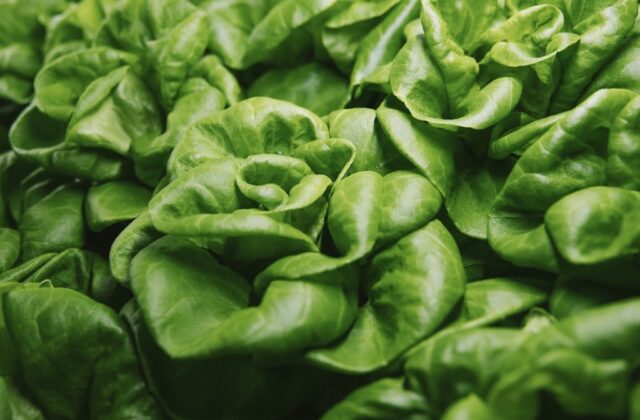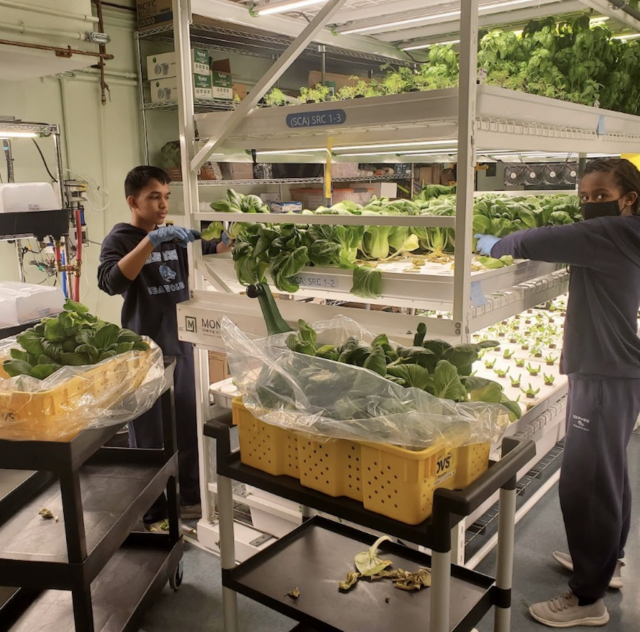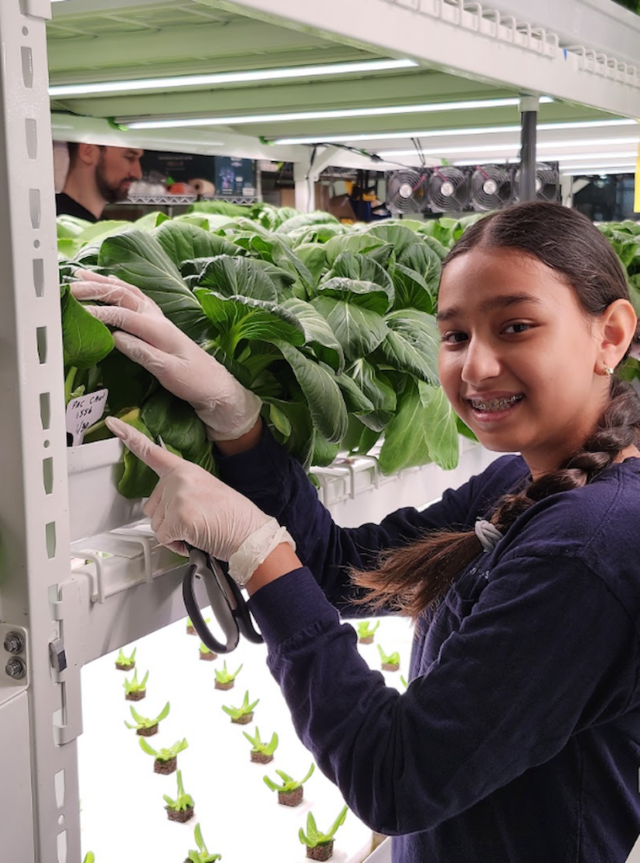
By Jim Servin
The air is fresh with hope and growth in an enclosed corner of a cafeteria at Manhattan’s Martin Luther King Jr. High School, where 1,300 square feet are devoted to the cultivation of lush, crisp hydroponic vegetables—lettuce, kale, cilantro, Thai basil, red peppers and more—on rows of shelves reaching to the rafters. Welcome to an urban farm created to nourish, teach, delight and inspire students as well as benefit food-insecure members of the community. It’s a serious venture, yielding 10,000 pounds of produce each year, and one of six such farms in 20 participating schools, which deliver a total of 45,000 pounds of produce annually, feeding 7,500 students. An imminent expansion of the program in New York City and Denver promises to raise those figures to 110,000 pounds of produce a year for 13,000 students.

“It’s always the perfect summer day in here,” says Katherine Soll, Teens for Food Justice chief executive officer and founder, surveying the cool, clean environment, a pesticide-free realm where ladybugs have been released to eat the aphids, fans whir and full-spectrum growth lights specifically designed for hydroponic farming shine 18 hours a day. “Indoor agriculture is an incredibly elegant solution for cultivating leafy green produce, as it uses one-tenth of the water of conventional farming,” Soll says. “It’s going to be an important part of how we grow food.” A closer look at the shelves of crops reveals motivating Post-it notes and heart-shaped drawings from student farmers to their plant progeny: “Grow, plant, grow” “You can do it,“ “Slay,” “Plants make you healthy,” “Anything is possible.”

It’s one of many signs of how strongly the project has connected with students. Says Tara Swibel, co-founder of Teens for Food Justice and a successful Broadway producer (Tony-nominated at age 26 for co-producing the musical Xanadu) who in 2012 brought her idea of hydroponic farming in schools to Soll, founder of a predecessor city organization, Students for Service: “They love the farm. They own the farm. Some kids come to Teens for Food Justice because they love the cooking aspect of it. Some kids love it for the social justice advocacy training. The program gives kids confidence in themselves and their ability to be leaders in the community.”
In the process, seeds are planted for thriving futures. “If you set a good table, and give everybody a seat at the table, nourish them and give them a space for dialogue,” says Soll, “think about all the problems we could solve in that environment.”
Tickets for the October 22 Feast 2024 Gala benefiting Teens for Food Justice can be purchased at teensforfoodjustice.org/gala





